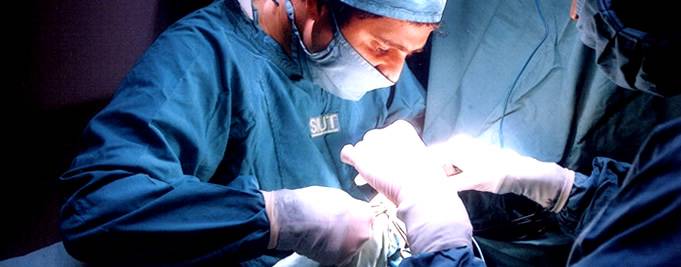The Sindh Institute of Urology Transplantation (SIUT) has opened a 24-hour emergency out-patient department in Sukkur to provide emergency services to kidney patients. With the launch of this out-patient department, more people will be able to avail the benefits of modern medical treatment. 90 patients are provided with the facility of dialysis every day at the newly-opened OPD. However, funds are required for the smooth provision of these facilities to people and consequently affluent people need to shoulder the responsibility of continuing the mission properly.
To establish the SIUT unit in Sukkur was an unavoidable need because to visit the SIUT in Karachi for treatment of kidney diseases was costly for people hailing from far flung areas of Sindh and Balochistan. This was the reason why most of them did not go back for a follow-up check-up and put their health at risk. Sukkur is the center of upper Sindh and therefore it is in easy reach for people from other districts of both provinces.
Sukkur, the third largest town of the province, has become a ‘red zone’ with regard to prevalence of kidney stone disease among children, mostly caused by consumption of contaminated water. According to safe water experts’ report, drinking water in many areas of Sindh has a lot of pollutants due to arsenic contamination. The outflow of sewerage and disposal of garbage in canal water are the main reasons behind increasing arsenic contamination in ground drinking water. The presence of arsenic in water poses many health hazards such as kidney stone disease, lung cancer, bladder cancer, and many other deadly diseases. With the course of time it will cause a colossal damage to lives if we fail to control it swiftly and effectively.
Approximately 18 million people are suffering from diabetes in Pakistan and at least 40 per cent of them will end up developing a chronic kidney disease. Pakistan, with the 6th largest population of diabetes in the world, is facing a challenge of rapidly growing kidney diseases. According to estimates of health experts, one in three citizens over 40 years of age suffers from some kidney disorder. Although the treatment of kidney diseases is highly expensive which is unaffordable for the poor people, the SIUT provides it free of cost. A one-time dialysis costs at least Rs.5000 to Rs.6000 and some of the patients have to go through the process twice a week. Lithotripsy charges for removing a one centimeter stone are Rs.40000. The SIUT does not charge a single rupee for these tests.
The SIUT started as an 8 bed unit in civil hospital Karachi in 1971 and is now a 450 bedded facility, the largest health organization in Pakistan and one of the most reputed medical institutes in the South Asian region. State of the art medical facilities are provided to patients without any discrimination of caste, ethnicity, or economic group. Each patient is treated with paramount dignity and respect. Free and comprehensive services in neurology, nephrology, transplantation, and liver related diseases are provided by the institute. In 1985, it performed Pakistan's first successful kidney transplant. In 2011, approximately 843,000 patients benefited from the various facilities that the institute offers. In 2013, over 1 million poor patients were treated free of cost and 370 transplants were performed. I feel proud to mention here that SIUT is the only health institute in Pakistan where 2,400 kidneys have been transplanted and besides around 480,000 minor and major surgeries have been performed so far. It is the largest kidney transplant center in the world.
A hardcore philanthropist and humanitarian, Dr Adib Hassan Rizvi, has devoted his life in saving millions of lives of the people who were not able to afford a proper treatment due to lack of funds. In recognition for his matchless, unique, and meritorious services to humanity by establishing the Sindh Institute of Urology and Transplantation (SIUT), he was awarded the lifetime achievement award by the Sindhi Association of North America (SANA). Although, in 2010, the then president Asif Ali Zardri had proclaimed that Pakistan will nominate Dr Adib Hassan Rizvi for Nobel peace prize, he has not been nominated so far.
It is an undeniable fact that kidney diseases are escalating in Pakistan with swiftness and the majority of affected people are poverty-stricken who are unable to afford the costly treatment of the disease. In this situation, it necessitates the SIUT to enhance its capacity of providing humanitarian services which can only be possible through financial contributions made by goodhearted people and national and international donor agencies.






